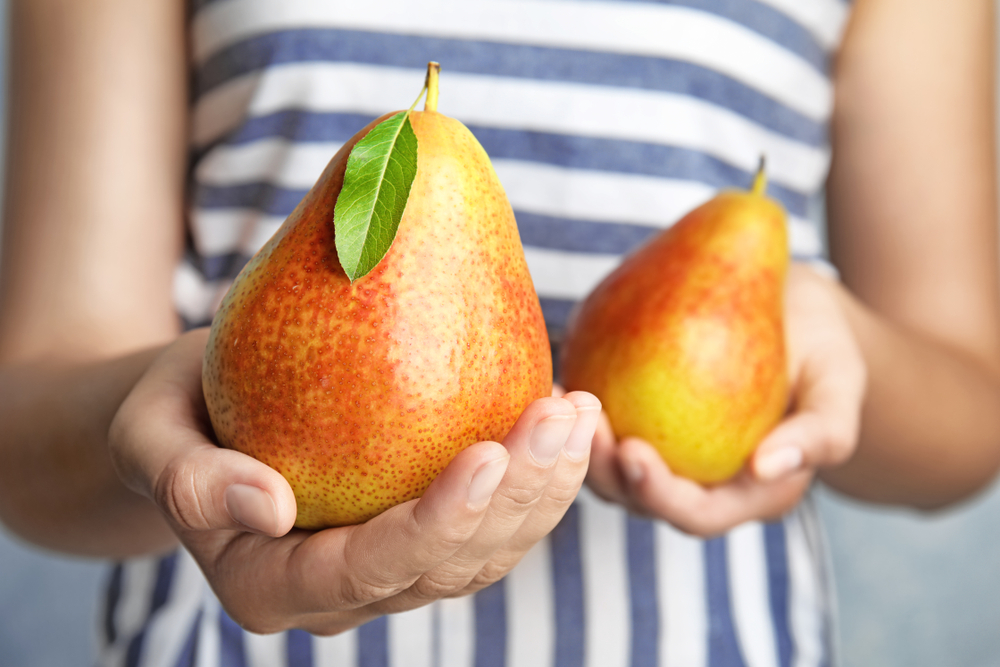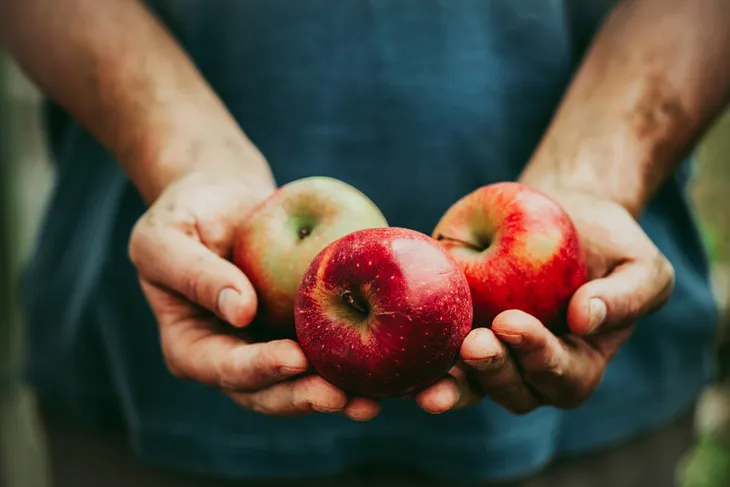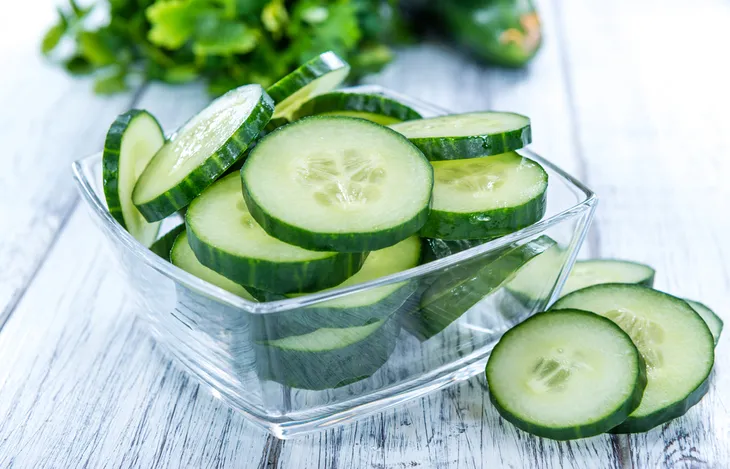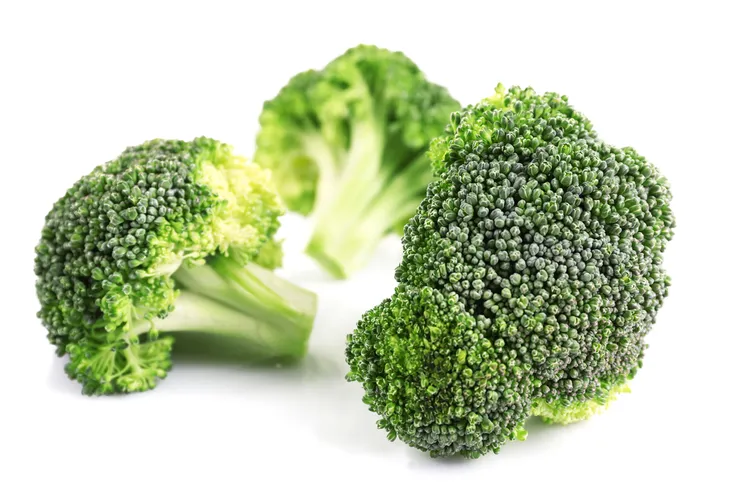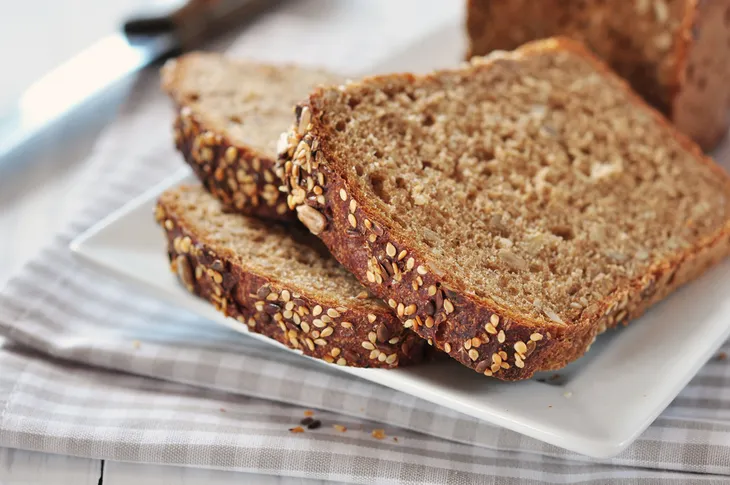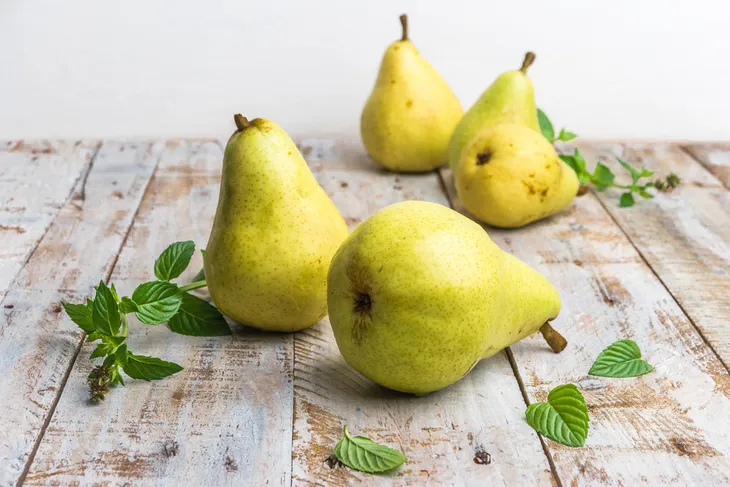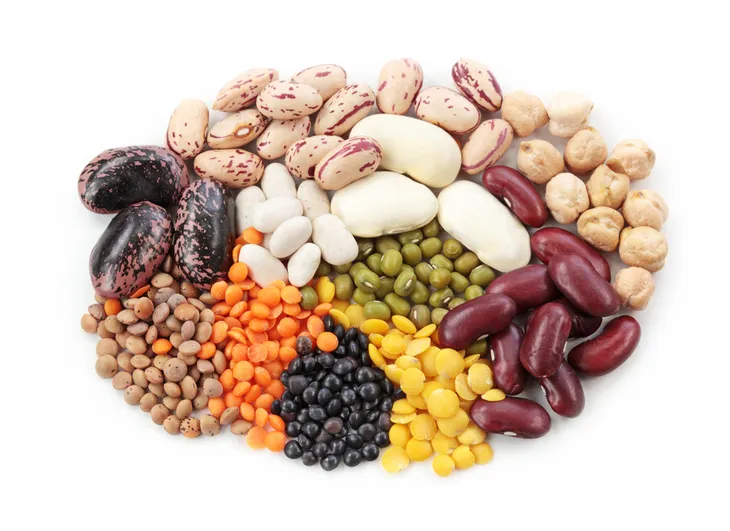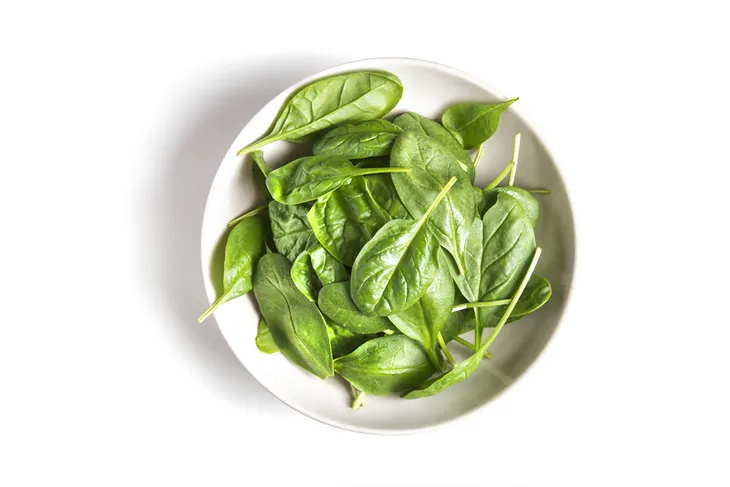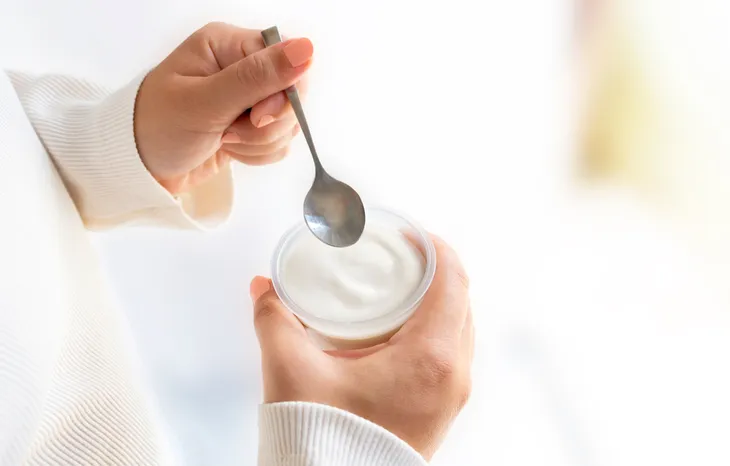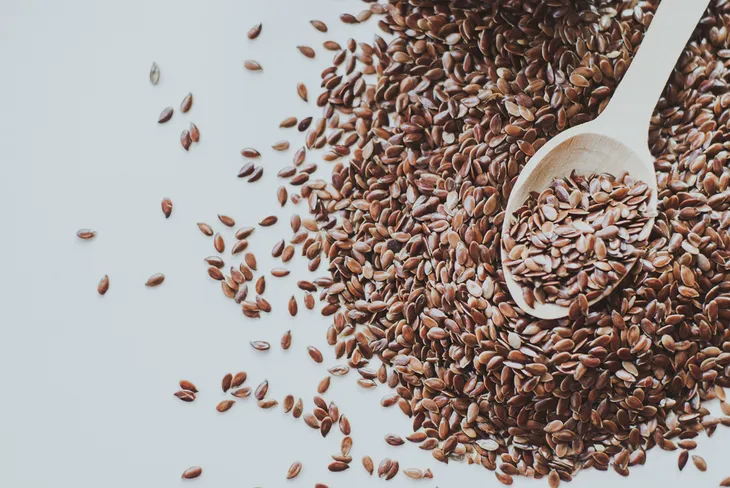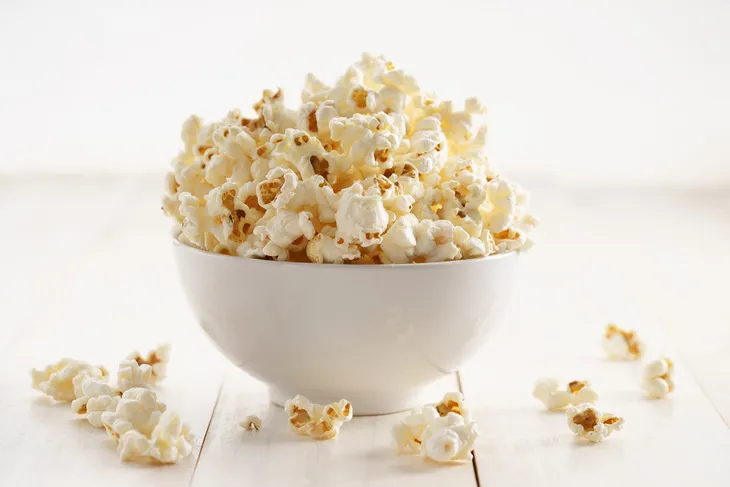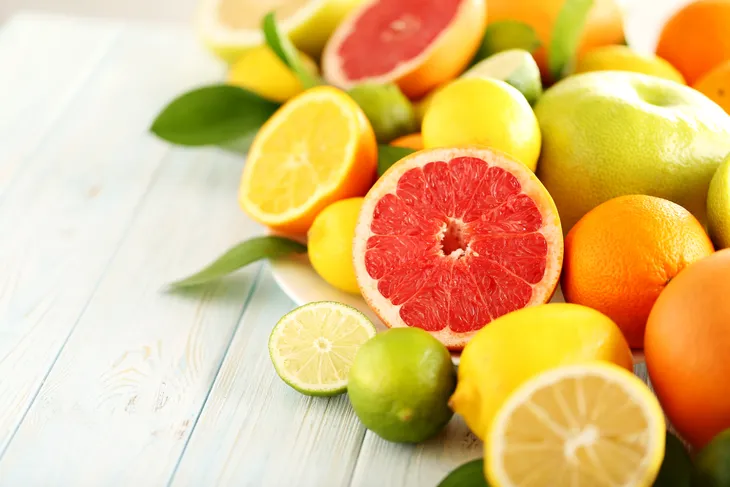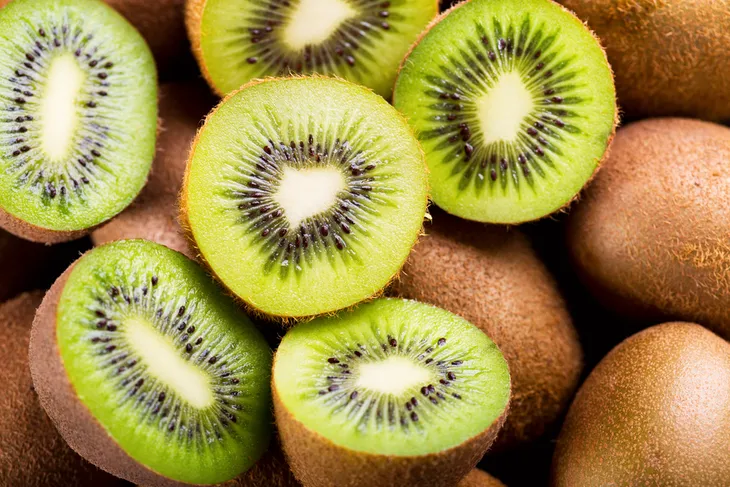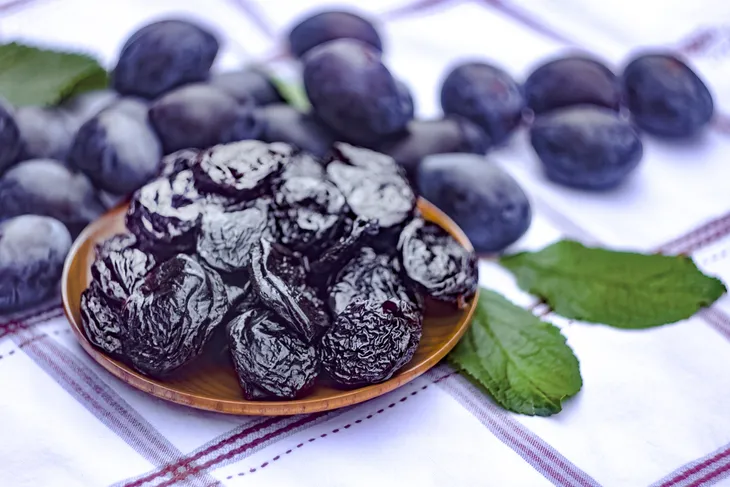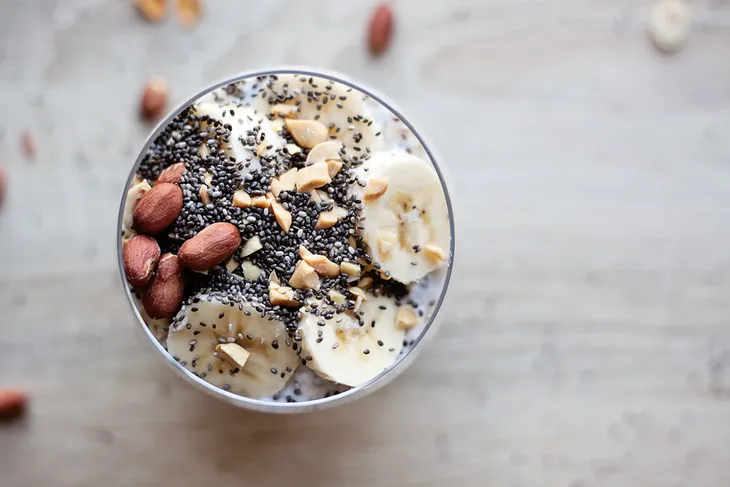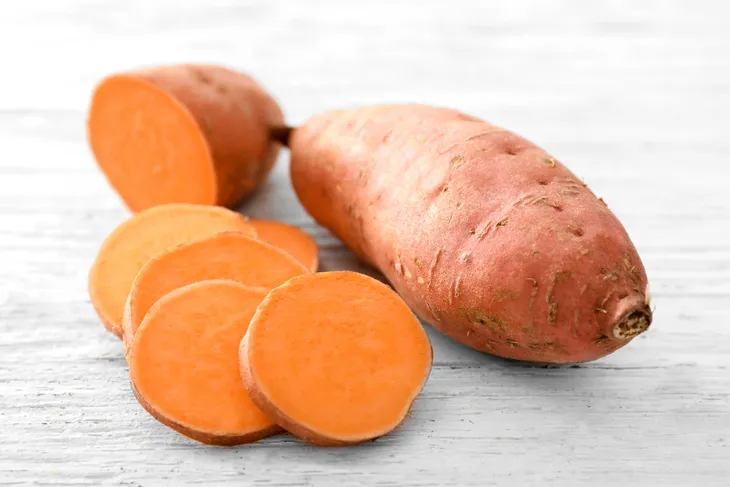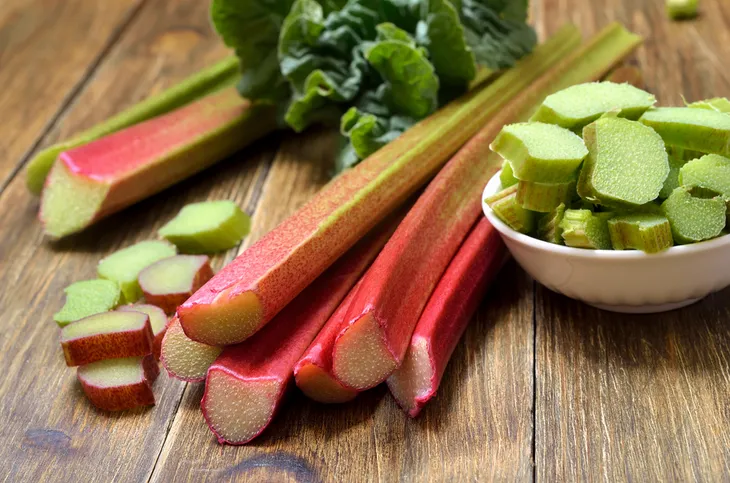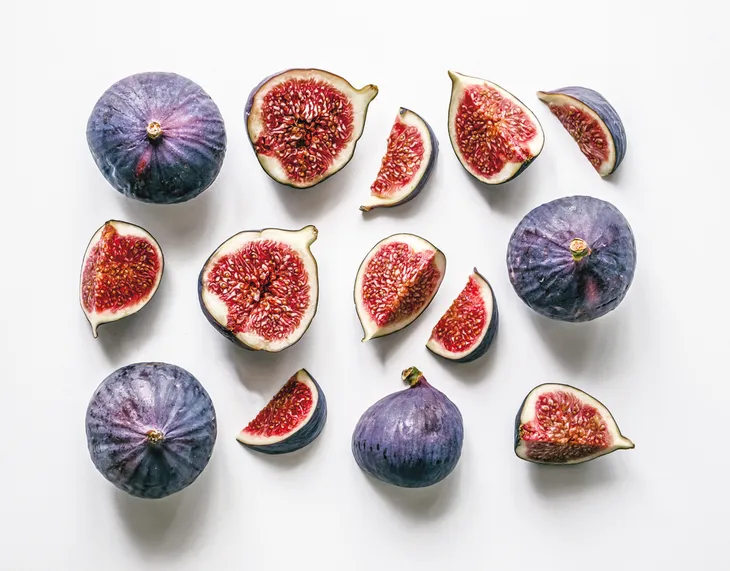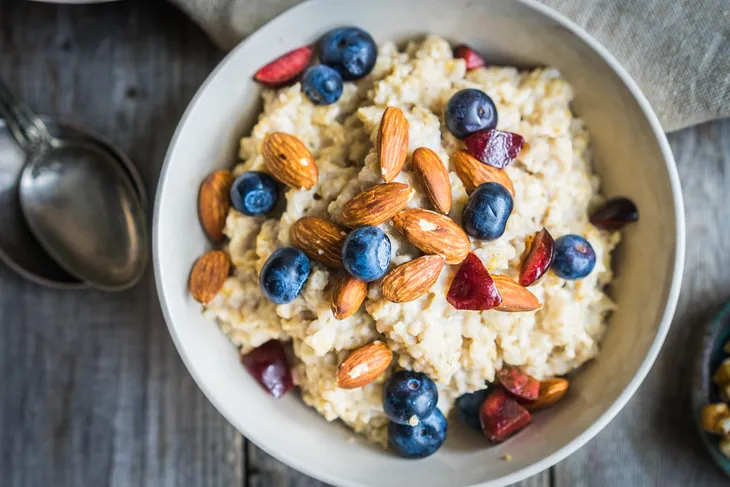While it’s not exactly the most comfortable thing to talk about or experience, unfortunately it’s also fairly common, so taking the time to learn about what foods could help relieve constipation and avoid any bouts of it in the future may be beneficial. But first, let’s define what constipation is. Constipation is defined as having fewer than three bowel movements a week.
According to the National Institute of Diabetes and Digestive and Kidney Diseases, approximately 42 million people deal with constipation on a regular basis. For whatever reason, it’s more common in men than women, but pregnant and postpartum women are at a higher risk. Thankfully, there are many effective options for treating and relieving constipation. Not surprisingly, a lot of it has to do with diet. Eating more of these 20 foods will help keep constipation at bay in the future and relieve any current issues….
Want diet & nutrition content delivered straight to your inbox? Sign up for our exclusive diet & nutrition newsletter!
Apples
An apple a day will keep constipation away! That’s not exactly how the saying goes, but in this case, it’s true! The skin on most fruits, including apples, contains lots of insoluble fiber which acts as a natural laxative. Healthline points out that one medium size apple (with the skin on) contains 4.4-grams of fiber which is 17-percent of the recommended daily intake (RDI).
“As fibre travels along the large intestine, it absorbs fluids to bulk up and soften waste material. That helps stool pass more easily through the colon, where muscle contractions move it along,” explains Reader’s Digest. “Fibre is particularly dense in the skin, stems, and leaves of fruit and plants.” This is why it’s so important not to peel an apple before eating it!
Cucumbers
Cucumbers are mainly water, in fact, Health.com says they are 96-percent water. This makes them kinda boring, but it’s also what makes them super healthy! There are so many ways to enjoy cucumbers. You can cut them up and snack on them with a little bit of hummus or chop them up and throw them on top of a salad! Trust us, even though they’re bland, they’re packed with healthy benefits. The biggest benefit is their water content which is what makes them so great for relieving constipation.
Cruciferous Vegetables
Broccoli might not be everyone’s favorite vegetable, but there’s no denying it’s a great source of vitamins, protein, and fiber. If you’re not a fan of broccoli, any cruciferous vegetable will do. A diet containing lots of cruciferous vegetables is important for digestive health, says Gina Sam, MD, director of the Mount Sinai Gastrointestinal Motility Center to Women’s Health.
Cruciferous vegetables contain high levels of fiber which is what helps us go to the bathroom! Just be warned, if you eat too much it may make you gassy. So try to enjoy this food in moderation, especially if your body isn’t used to it.
Eat Whole Wheat Bread
If you’re struggling with irregular bowel movements, the first thing to do is throw away all the white bread, pasta, and rice! Make the switch to whole grains. There are so many great options for whole grain bread, cereals, and even crackers. Just be sure to choose ones that are low-fat and low-sugar, says WebMD.
According to Healthline, one of the best sources of dietary fiber is whole-grain rye bread. Two slices of whole-grain rye bread contains 4-grams of dietary fiber which is 15-percent of the RDI. It goes on to cite research from The Journal of Nutrition which found “rye bread to be more effective at relieving constipation than regular wheat bread or laxatives.”
Pears
Pears don’t get enough credit. They’re not as popular as other fruits, but they’re just as healthy! This curvy fruit contains lots of antioxidants and vitamins, and are one of the most fibrous fruits available! One medium-sized pear contains 5.5-grams of fiber which is 22-percent of the RDI, says Healthline. That’s more than an apple!
In addition to all that fiber, pears are high in fructose and sorbitol. “Fructose is a type of sugar that is poorly absorbed in some people. This means that some of it ends up in the colon, where it pulls in water by osmosis, stimulating a bowel movement,” writes the source. Similar to fructose, sorbitol is also not well absorbed in the body and can act as a natural laxative in the intestines, adds Healthline. If you’re someone who experiences constipation on a regular basis, it might help to add some pears into your everyday diet.
Beans
Beans, beans, the magical fruit, the more you eat, the more you…well, you know how the rest goes! As the song says, beans can help keep bowel movements regular and avoid constipation. “Beans provide a winning combination of soluble and insoluble fiber,” says Amy Gorin Nutrition when talking to Women’s Health. Soluble fiber is what softens the stool and insoluble fiber bulks it up, making it easier to pass through the digestive system. “This fiber is very helpful for stimulating digestion, as well as for feeding gut bacteria. Additionally, eating a diet high in fiber will help bulk up the weight and size of your stool — and this makes it easier to pass,” adds Gorin.
WebMD advises replacing meat at least once or twice a week with a more plant-based dish like beans or legumes. There are so many different options for healthy plant-based dishes like salads, bean soups, and even stews.
Spinach
Spinach is one of the healthiest foods to eat and it’s great for people who are prone to constipation because it’s full of fiber and magnesium. According to Health.com 1-cup of cooked spinach contains 4-grams of fiber. The fiber and magnesium work together to bulk up the stool and keep it moving.
In fact, magnesium is one of the main ingredients in laxatives. This mineral causes the colon to contract and “helps draw water in to flush things through,” says Elizabeth Blaney, MD, gastroenterologist and clinical assistant professor of medicine at the University of Pittsburgh to Health.com. Instead of taking a laxative, incorporating some magnesium into your diet is a much easier option for most people.
Coffee
Coffee gets us moving in more ways than one! Anyone who drinks coffee on a regular basis knows that it can stimulate the bowels. Unlike all the other foods on this list, there’s no fiber in coffee, but there has been some research which shows it can regulate bowel movements. “You may not think of coffee as something that helps get things moving,” says Gorin to Women’s Health, “but it does for about 30-percent of people. Some people even notice the effect from decaf coffee.”
According to Reader’s Digest, one of the reasons coffee has this effect is because hot liquids move the bowels. “Coffee may also trigger intestinal muscles to contract. It’s not a good long-term solution, especially because coffee is a diuretic (so drink plenty of water as well), but in the short term, it should help do the trick,” writes the source.
Yogurt
Yogurt is often praised as being good for the digestive system because it contains live active bacterial cultures or probiotics which help restore the balance of good bacteria in the gut. The balance of good and bad bacteria in the gut is extremely important to our overall health. In fact, there are many ties between the gut and our mental and physical health. As a result, yogurt can be extremely beneficial to the gastrointestinal system.
Health.com refers to a meta-analysis published in the American Journal of Clinical Nutrition back in 2014 which found “probiotics helped increase the number of bowel movements by 1.3 per week, and […] improved consistency, too, making things more comfortable when you go,” writes the source.
Flaxseeds
Flaxseeds are small but they pack a pretty good punch when it comes to health benefits! As one of the oldest superfoods, flaxseeds have been consumed for centuries and were traditionally used as a natural remedy for constipation, says Healthline. In addition to being a good source of vitamins, minerals, and omega-3 fatty acids, flaxseeds are also rich in soluble and insoluble fiber which makes them great for the digestive system. For example, just 1-tablespoon of flaxseeds contains 2.8-grams of fiber which ends up being 11-percent of your RDI.
Researchers from a study published in BMC Complementary and Alternative Medicine suggest “that insoluble fiber acts like a sponge in the large intestine, retaining water, increasing bulk and softening the stool,” writes Healthline. “Meanwhile, the soluble fiber promotes bacterial growth, adding mass to the stool.”
Popcorn
This one almost seems too good to be true, encouraging snack foods like popcorn? It’s true! Popcorn actually does contain some fiber, but it’s important to note that when we suggest eating some popcorn, we aren’t talking about that salty, buttery popcorn from the movie theaters or even those buttery microwavable bags. You’re going to want to keep the popcorn as natural as possible. Also, moderation is key here. When it comes to picking a snack for Friday night, opt for popcorn over chips or candy.
According to Health.com, 3-cups of air-popped popcorn contains 3-grams of fiber and just 93 calories.
Citrus Fruits
Yet another fruit on this list is anything citrus, including oranges! Health.com advises not opting for orange juice because it’s usually full of sugar. Try just eating a big juicy orange. One large orange contains 4-grams of fiber and only 86 calories. Citrus fruits also contain “a flavonol called naringenin, which Chinese researchers in an animal study found could work like a laxative to help treat constipation,” adds the source.
If you’re not a big fan of oranges, you can try eating some grapefruit or mandarins. One grapefruit contains 2.6-grams of fiber which is 10-percent of the RDI. In addition to the fiber and naringenin, Healthline explains that citrus fruits are also rich in soluble fiber pectin, particularly the peel. “Pectin can accelerate colonic transit time and reduce constipation,” writes the source.
Kiwi
Kiwis are vibrant, sweet, and super delicious! You’d be hard pressed to find someone who doesn’t like this tropical fruit. Unlike other fruits that are high in fructose (which has been known to make people gassy), kiwis are low in sugar and high in fiber so they won’t cause any unwanted bloating. Just one kiwi contains about 2.3-grams of fiber, says Healthline. That’s 9-percent of the RDI.
In addition to the fiber, you’ll also get other healthy nutrients like vitamin C, as well as an enzyme called actinidain. Healthline explains that actinidin also helps fight constipation. Actinidain “is also hypothesized to be responsible for kiwifruit positive effects of gut motility and bowel habits,” writes the source. To enjoy a kiwi, either eat it raw or peel it, scoop out the contents and add it to either a salad or smoothie!
Prunes
Prunes (also known as dried plums) are super high in fiber which is why they are widely known for regulating bowel movements. Reader’s Digest describes them as a natural mild laxative because once they are in the digestive system, they work by stimulating the muscles to push waste through the large intestine. “Prunes are a natural source of sorbitol, which helps stimulate digestion by helping to move water into your large intestine,” adds Gorin when talking to Women’s Health.
While prunes are high in fiber content (five prunes equals about 3-grams of fiber), researchers don’t believe this is what makes them so great for constipation. It’s more likely the high content of sorbitol because drinking prune juice is equally as effective. If you’re not a fan of prunes, most other dried fruits will have the same effect. Try eating apricots instead.
Drink Lots of Water
Constipated or not, drinking lots of water is super important. We should all aim to drink at least eight glasses of water every day. It’s something a lot of people struggle with and it could be one of the reasons you’re feeling a little backed up. No matter how much fiber you’re eating, it also needs water in order to work. “When we don’t drink enough water, our bodies pilfer it from our waste, leaving stools hard and difficult to pass,” writes Reader’s Digest.
If you’re someone who really struggles with drinking enough water, try making it more interesting by adding some slices of fruit like strawberries, peaches, watermelon, or citrus fruits like lemon or lime. You could also invest in a nice reusable water bottle that can travel around with you.
Chia Seeds
Just like flaxseeds, chia seeds are tiny, but don’t underestimate their power! They are one of the most fiber-dense foods out there. One ounce of chia seeds contains 10.6-grams of fiber which is a whopping 42-percent of the RDI!
To make chia seeds even more beneficial, soak them in water. Once wet, they will form a gel that can help soften stools and make them easier to pass. “What’s more, chia can absorb up to 12 times its own weight in water, which can help add bulk and weight to stools,” writes Healthline. There are so many different ways to enjoy chia seeds which makes them super easy to incorporate into your diet. Simply sprinkle a pinch over a bowl of oatmeal, into a smoothie, salad dressing, or even bake them into desserts!
Sweet Potato
Sweet potatoes can provide some sweet relief when it comes to constipation thanks to their ample fiber content. Healthline points out that one medium sized sweet potato contains 3.8-grams of fiber which works out to 15-percent of the RDI. Not bad!
While the most rewarding part of sweet potatoes (when it comes to constipation) is their insoluble fiber which can be found in the form of cellulose and lignin, says Healthline. They also contain soluble fiber pectin. “Insoluble fiber can aid bowel movements by adding bulk and weight to stools,” adds the source.
Rhubarb
This red leafy plant is a great cooking ingredient and it comes with some pretty awesome health benefits too! Rhubarb is known for its bowel-stimulating properties thanks to the compound sennoside, more commonly known as Senna, which is a natural laxative, says Healthline.
A study published in the Journal of Ethnopharmacology examined the effect of sennoside on rats and found that rhubarb works to decrease levels of aquaporin 3, “a protein that regulates the movement of water in the intestines,” writes Healthline. “A lower level aquaporin 3 means less water is moved from the colon back into the bloodstream, leaving stools softer and promoting bowel movements.”
To enjoy rhubarb, remove the leaves of the plant as they cannot be eaten. Cut the stalks and boil them. Thanks to its tart flavor, you can use rhubarb as an ingredient for many dishes like pies, tarts, and crumbles.
Figs
While they’re not super popular, figs are great for the digestive system because they are high in fiber and promote healthy bowel habits. A medium-sized fig contains 1.6-grams of fiber and half a cup of dried figs contains a whopping 7.3-grams of fiber, says Healthline.
In addition to their fiber content, it’s the enzyme ficain that makes them so great for relieving and avoiding constipation. “Figs contain an enzyme called ficain, which is similar to the enzyme actinidin found in kiwifruit. It is thought this may contribute to its positive effects on bowel function, alongside its high fiber content,” writes the source. To enjoy figs, you can eat them raw or add them as a topping on salads or even pizza!
Oat Bran
Breakfast is arguably the most important meal of the day. To start the day off right, eat breakfast every day and make sure that the food you’re eating is healthy! One of the best breakfast foods to eat first thing in the morning is oat bran. This is described by Healthline as the “fiber-rich outer casing of the oat grain.” Other healthy fiber-rich foods would be oatmeal or other whole grains. Like many of the other foods on this list, oats contain both soluble and insoluble fiber.
When choosing your oatmeal in the morning, try to avoid using the more convenient options like quick oats because the fiber content is much higher in oat bran. For example, Healthline explains that one-third cup of oat bran has 4.8-grams of fiber whereas the same amount of quick oats has 2.7-grams of fiber.
Aim to eat about three servings of whole grains like brown rice and oats on a daily basis, says Women’s Health.
